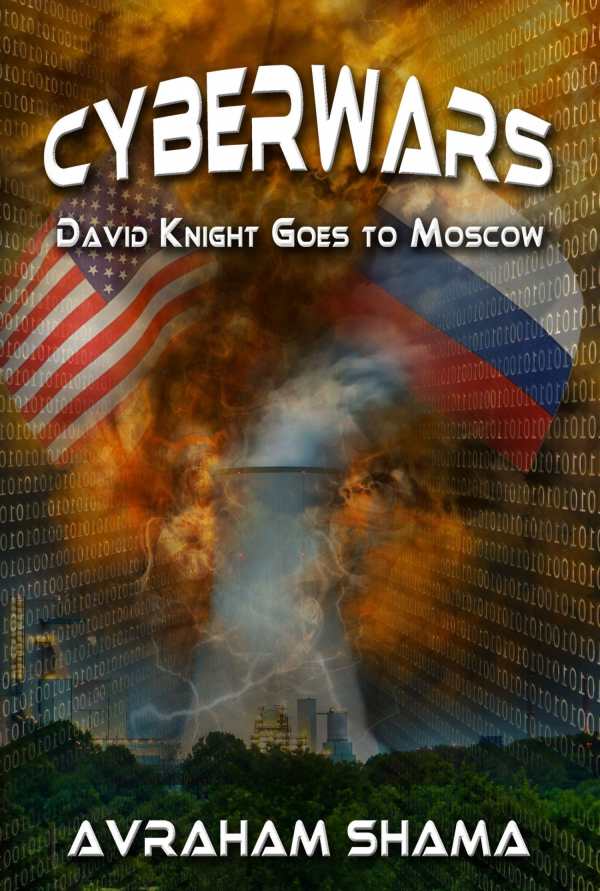Cyberwars
David Knight Goes to Moscow
In the modern thriller Cyberwars, a new spy sits poised on the edge of a war that’s bigger than anyone understands.
Centering relations between the US and Russia, Avraham Shama’s thriller Cyberwars follows along as an affluent professor becomes a spy.
In 1999, Perestroika, a late-1980s Russian economic policy that introduced free market strategies, still has some unknown implications. In this atmosphere, David, a professor, moves from New York City to New Mexico, healing from his failed marriage and lost tenure. Then he receives a call from the CIA regarding his specialized knowledge of the Russian economy. The Agency asks him to continue his research from Russia.
In Russia, David is assigned a translator, Alexa. She proves to be an eager host. He also meets Sasha, a disgruntled scientist who works for a military institution, and who reveals that the Russian economy is in danger of collapsing. Sasha proposes a creative solution that involves unprecedented technologies. Meanwhile, David’s vibrant, patient coworker, Toni, works to win his heart, even as the schism between David’s spy work and day job threatens to tear him and Toni apart for good.
Encompassing one turbulent year, the novel details Russian economics and New Mexico culture with care. Descriptions of years of tears “long absorbed in the grainy wood” of a prison chair lead to emotional moments, while amusing instances, as with a guest visit from talking flowers, result in mystical diversions. In contrast to these engaging factors, though, are robotic human interactions that force clear understandings of people’s intentions while skipping over deeper topics. Transitions between viewpoints further undermine the novel’s continuity, as do errors in its flashbacks (as when Toni is mentioned when the book means to reference Alexa).
While elements of the book’s technology seemed like science fiction in 1999, they evoke contemporary recognition: what David sees and hears about Russian relations in his present is a microcosm of reality. His own views of the situation are grainier, though. As a hero, he’s lovable: he has an identity crisis; he risks falling into his temptations. His decisions have rippling effects, and these tensions are also reflected in the book’s secondary characterizations. But just as David works through his social analyses, edging toward becoming a freer man (both in his personal life, and in his career), the story hits a wall, foregoing resolution in favor of a disappointing cliffhanger ending.
In the modern thriller Cyberwars, a new spy sits poised on the edge of a war that’s bigger than anyone understands.
Reviewed by
Samantha Ann Ehle
Disclosure: This article is not an endorsement, but a review. The publisher of this book provided free copies of the book and paid a small fee to have their book reviewed by a professional reviewer. Foreword Reviews and Clarion Reviews make no guarantee that the publisher will receive a positive review. Foreword Magazine, Inc. is disclosing this in accordance with the Federal Trade Commission’s 16 CFR, Part 255.

